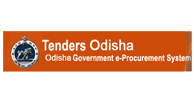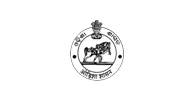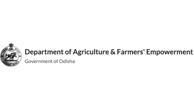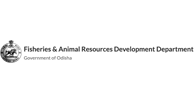The GCF project, titled "Ground water recharge and Solar Micro Irrigation to ensure food security and enhance resilience in vulnerable tribal areas of Odisha", aims to enhance climate resilience and promote sustainable development in the state of Odisha, India.
Aim/Primary Objective of the GCF Project: The primary objective of this project is to enhance groundwater recharge in the community ponds through structural adaptation measures and use of solar pumps for micro-irrigation to ensure water security and food security in the vulnerable areas of the state of Odisha, India.
Sub-Objectives of the Project: The sub-objectives to achieve its primary aim:
- Augmentation of groundwater recharge to improve water table and water quality conditions in rural areas (Gram Panchayat) through the adoption of recharge systems in existing village ponds/tanks.
- Sustainability of groundwater-based schemes (domestic/irrigation) at the Gram Panchayat level, including the revival of defunct community tanks used as drinking water sources for reducing vulnerability.
- Use of solar pumps for irrigation as a component of a low-emission, climate-resilient crop planning strategy.
- Increased climate-resilient sustainable development.
- Enhanced livelihoods and increased resilience for the most vulnerable people, communities, and regions.
- Increased resilience of health and well-being, and food and water security.
- Promotion of a sustainable strategy for energy security through low-emission crop water management.
- Create a knowledge base for enabling policy and regulatory framework for market transformation
Components and Activities of the GCF Project: The project is structured into seven main components, each with specific outputs and activities:
Capacity Building of Stakeholders
- Activity 4.1.1: Training need assessment for sample households in tank command and PPs This activity involves conducting training needs assessments for target households in tank commands and Pani Panchayats, with a clear focus on vulnerable groups like women, BPL, and the landless.
- Activity 4.2.1: Training modules preparation and partners identified for both training and demonstration This activity focuses on developing training modules on climate-resilient practices, water sharing, and Pani Panchayat strengthening. Partners are identified for both training delivery and field demonstrations.
- Activity 4.3.1: Training of Implementing Department (State Level) This activity involves training 500 engineers from the implementing department on tank quality management, monitoring groundwater recharge, and other aspects.
- Activity 4.3.2: Training of Jal sathis This activity focuses on training 20,000 "Jal sathis" (village-level para-professionals). Their training includes organic farming, integrated pest management, social forestry, water quality, efficient water use, and solar pump maintenance.
- Activity 4.4.1: Training and demonstration in convergence with relevant departmental programmes of the government This involves organizing training and demonstration programs in convergence with various government departments. These programs cover sustainable resource management strategies for water use in agriculture and include planning for convergence of existing schemes at the Panchayat level.
- Activity 4.5.1: Landless and women members capacity building for off-farm initiatives This activity provides capacity building to 150,000 landless individuals and women members in off-farm initiatives like fishery and poultry. The aim is to link them to skill development, SHGs, and bank linkages.
- Activity 4.6.1: Linking of FPOs This activity focuses on linking Farmer Producer Organizations (FPOs) to the scheme to promote collectivization of produce and strengthen their market access and equity.
Output 4.1: Training need assessment for sample households in tank command and PPs completed
Output 4.2: Training modules prepared and partners identified for both training and demonstration
Output 4.3: Training of 500 engineer 20,000 jalsathis completed and certified
Output 4.4: No of training and demonstration organized in convergence with relevant departmental programmes of the government
Output 4.5: No of landless and women members covered under capacity building for off-farm initiatives
Output 4.6: FPOs are linked











